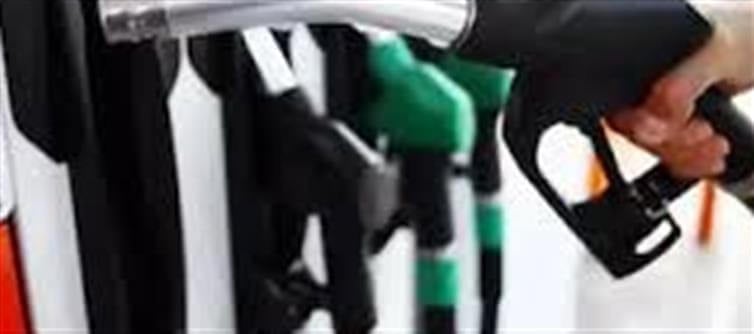
The prices of petrol and diesel have been revised as of October 1, 2025, and it's important to stay updated before heading to the petrol pump. Prices can vary depending on where you live due to factors like taxation, transportation costs, and market fluctuations.
Here's a detailed breakdown of the new fuel prices and how they might affect your pocket:
1. National Overview: New petrol and diesel Rates
Starting from October 1, 2025, petrol and diesel prices have seen some adjustments across various cities in India. These changes reflect the global crude oil price trends and currency fluctuations. While some cities will witness a slight decrease in prices, others may experience an increase.
· Petrol: Expect a revised price range between ₹99 to ₹110 per liter depending on the city.
· Diesel: diesel prices now range from ₹90 to ₹100 per liter.
2. City-Specific Price Changes: What’s New in Your Area?
Fuel prices are location-dependent, so it's crucial to know the updated rates for your city. Here’s a glimpse of how prices are shifting in key cities:
Delhi
· Petrol: ₹104.90 per liter (up ₹0.50)
· Diesel: ₹94.50 per liter (up ₹0.40)
Mumbai
· Petrol: ₹111.70 per liter (down ₹0.30)
· Diesel: ₹98.10 per liter (up ₹0.20)
Kolkata
· Petrol: ₹106.20 per liter (up ₹0.40)
· Diesel: ₹95.40 per liter (no change)
Chennai
· Petrol: ₹106.60 per liter (up ₹0.30)
· Diesel: ₹95.70 per liter (up ₹0.20)
Bangalore
· Petrol: ₹107.30 per liter (up ₹0.60)
· Diesel: ₹95.90 per liter (up ₹0.30)
Hyderabad
· Petrol: ₹107.80 per liter (no change)
· Diesel: ₹96.00 per liter (up ₹0.50)
3. Why Do petrol and diesel Prices Keep Changing?
Fuel prices are influenced by several external and internal factors, including:
· Crude oil Prices: The global price of crude oil directly impacts fuel prices. Fluctuations in oil prices due to geopolitical events, production cuts by OPEC, or changes in global demand can cause price changes.
· Currency Exchange Rates: Since crude oil is priced in US dollars, any fluctuation in the Indian Rupee (INR) against the USD can affect fuel prices.
· Government Taxes: Excise duties and VAT imposed by state governments are key determinants in fuel pricing. Changes in taxes can cause a hike or drop in rates.
· Local Demand and Supply: Fuel prices also vary based on transportation costs, the proximity of oil refineries, and the overall demand in a particular region.
4. Impact on Your Daily Budget: How Will These Changes Affect You?
Even minor changes in fuel prices can have a significant impact on your daily expenses, especially if you rely heavily on your vehicle for commuting or business. Here’s how:
· Increased Travel Costs: A rise in petrol or diesel prices means that your commuting costs will go up. If you drive long distances daily, this can add to your monthly budget.
· Transportation of Goods: The price of diesel is particularly important for the logistics sector, as it directly affects the cost of goods transportation. If you rely on deliveries or purchase goods from external suppliers, you may see price hikes in products.
· Public Transportation Costs: Many cities might increase bus or taxi fares in response to higher fuel prices, further impacting your transportation costs.
5. Tips to Save on Fuel Costs
With fuel prices constantly changing, here are some simple tips to save on fuel costs:
1. Plan Your Trips: Combine errands to minimize the number of trips you make.
2. Maintain Your Vehicle: Regular maintenance, such as changing air filters and keeping tires inflated, can improve fuel efficiency.
3. Adopt Eco-Driving Habits: Avoid aggressive driving, rapid acceleration, and sudden braking. Smooth driving can save fuel.
4. Use Public Transport: If possible, consider using public transport or carpooling to reduce fuel consumption.
5. Fuel Up During Off-Peak Hours: Fuel prices tend to be slightly lower during early mornings or late evenings. Try to fill your tank during these times.
6. Stay Updated: How to Track Fuel Price Changes
Since fuel prices fluctuate frequently, staying updated on the latest rates can help you plan better. Here are a few ways to track fuel prices:
· Mobile Apps: Several apps provide real-time fuel price updates based on your location, such as IndianOil’s MY IOCL app, Fuel Buddy, and others.
· Official Websites: Check the official websites of oil companies like Indian Oil, BPCL, and HPCL for daily fuel rate updates.
· SMS Services: You can subscribe to SMS services that alert you about fuel price changes in your city.
Final Thoughts: Keep an Eye on Fuel Prices
With the new price changes coming into effect from October 1, 2025, it’s important to stay informed about the latest fuel rates in your city. Understanding the impact of these changes can help you better plan your commuting budget and manage expenses effectively.
Make sure to check the current rates before heading out to fill your tank—fuel prices may vary from one location to another, and small differences can add up over time.
Stay smart, plan ahead, and keep track of fuel price changes to manage your daily costs more efficiently!
Drive safe and budget wisely!
Disclaimer:
The views and opinions expressed in this article are those of the author and do not necessarily reflect the official policy or position of any agency, organization, employer, or company. All information provided is for general informational purposes only. While every effort has been made to ensure accuracy, we make no representations or warranties of any kind, express or implied, about the completeness, reliability, or suitability of the information contained herein. Readers are advised to verify facts and seek professional advice where necessary. Any reliance placed on such information is strictly at the reader’s own risk..jpg)




 click and follow Indiaherald WhatsApp channel
click and follow Indiaherald WhatsApp channel